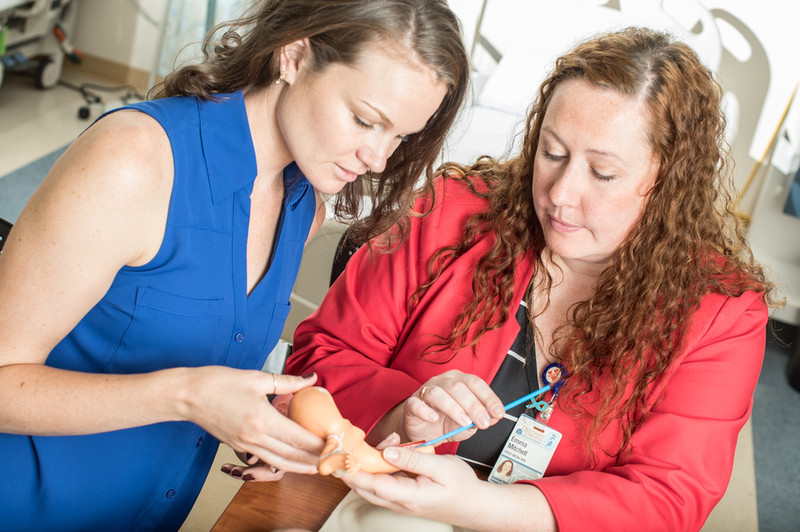Taking Prevention on the Road
What if it were possible for a deadly disease at home, without a trip to the doctor’s office? Would that encourage more people to get tested, leading to earlier detection and possibly saving lives?
That’s the idea behind the latest efforts of assistant nursing professor Emma Mitchell, PhD (Nurs ’08, ’11). Mitchell is working to ensure that more women, especially those in rural areas, have access to testing for the most dangerous strains of human papilloma virus (HPV)—those that can lead to cervical cancer. In the past year, inexpensive HPV self-collection tests have shown tremendous promise in pilot studies.
“Quickly caught, cervical cancer is quite treatable,” says Mitchell. “It’s when it goes undetected that it becomes deadly. We’re hoping that taking the tests and our message on the road will help make it less so.”
During the past two summers, Mitchell has paired cervical cancer screenings with mammography appointments for women who receive care at a Remote Area Medical (RAM) Clinic and through UVA’s traveling mammography van. Now, a new gift from Pat (Nurs ’69) and Keith Woodard (A&S ’71, Dard ’75) will help Mitchell reach even more rural women with the self-collection tests. Previous funding from UVA Cancer Center allowed Mitchell and her students to train “lay navigators” to visit rural women and explain how to use the kits. With the Woodard gift, Mitchell and her team hope to recruit 70 more women to take the self-collection tests in regions of Virginia especially hard hit by cervical cancer.

The statistics are sobering: Between 15 and 16 percent of rural women tested positive for high-risk strains of HPV in the groups already seen by Mitchell and her navigators. While the HPV vaccine has improved infection rates in the U.S., women who aren’t eligible for the vaccine, or who lack access to good primary care, aren’t so lucky. In many rural areas, including Southwest Virginia, cervical cancer deaths are a quarter to a third higher than elsewhere in the state. The Woodards’ gift meets an immediate need and strengthens a federal funding proposal that could have even greater implications.
“We’re really passionate about helping underserved populations in rural areas,” says Pat Woodard. “This project is a perfect fit for how we want to make a difference.”
